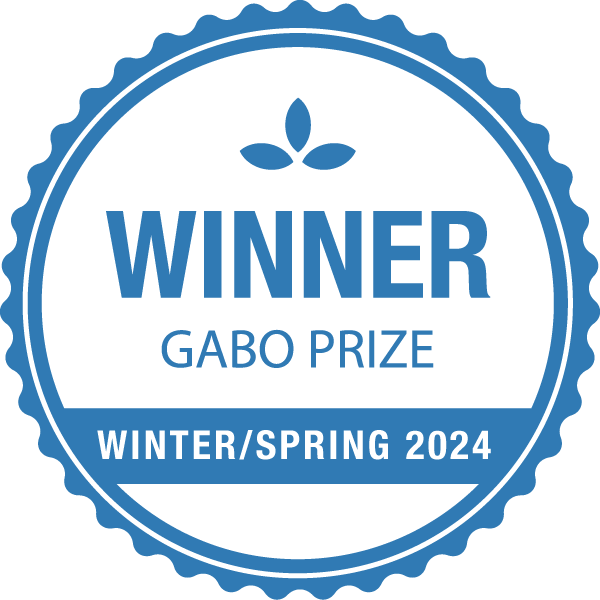The Night Security Guard
Missus doctor suspects us of good health
we’re easy to recognize
dressed in our work uniforms.
those fellas are security guards. if you give them
something to guard they think themselves gods.
she wants to see if we have all we need
or maybe something extra. who knows. where we
split and we aren’t whole anymore
she puts all sorts of questions to our electric hearts
as if she’d like to know honest to God
what came over us
and our steaming women pass by
smelling of homemade cozonac
for the regular checkups she surely has
a huge comb to groom us
and she’s left with a handful of our hair
she braids it into blonde pigtails flower-power.
we’re served bloody rare steaks
we’re so sluggish and feel so good we crack up
when we slip off the slanted table
because we’re so sloshed. but missus doctor
takes care we don’t spill she puts a
cap on each of us and wishes us happy birthday.
Doamna doctor ne bănuieşte de sănătate
suntem uşor
de recunoscut îmbrăcați
în echipamentul de serviciu.
ăştia sunt paznici. dacă
le dai ceva să păzească se cred dumnezei.
vrea să vadă dacă avem tot ce ne trebuie
sau poate în plus. cine ştie. pe unde ne-am
despărțit şi nu mai suntem întregi
ne pune tot soiul de întrebări pe inimile noastre electrice
să afle ea vezi Doamne
de la ce ni se trage
femeile noastre de trecere
aburinde miros a cozonaci de casă
are ea pentru controlul periodic
un pieptene uriaş să ne dichisească
şi-i rămâne de la noi o mână de păr
cu care-și împleteşte codițe blonde flower power.
noi suntem serviți cu friptură în sânge
aşa molateci şi ne simțim bine râdem zgomotos
când alunecăm de pe masa înclinată
de beți ce suntem. însă doamna doctor
are grijă să nu ne vărsăm ne pune câte
un cep şi ne urează la mulți ani.
We hang upside down from the railing
bats looking to the void in our down time. missus
technology teacher stared at one of the hours too much. the hour
stared back. she throws a reason at us every time.
we get bloated from some of the curses.
we’re coming apart nuts bolts and all. a new heart waiting.
one liver at a time. powder kegs we sometimes crane our necks flashing
on low heat dry beans.
we remember the herbarium book
of nerves. forget that we’re alive. we don’t even hope
for death.
how can you keep fireflies from roaming
in the hallways you disappoint me I tell them.
they don’t want to go to class
to put good behaviors on their desks
mister German teacher has two watches
one for each building. he’s not even a minute late
in building A or building B.
when he misses a minute he crouches down
covers his eyes with his hands to cry on the inside.
a child who doesn’t arrive on time.
we coddle him we’re kind.
Atârnăm de balustradă cu capul în jos
lilieci spre hău din timpul nostru de stat degeaba. doamna
profesor de tehnologie s-a uitat în câte o oră prea mult. ora
s-a uitat în ea. aruncă de fiecare dată cu câte un motiv în noi.
ne balonăm de la câte o înjurătură.
ne desfacem din șuruburi și piulițe. inimă nouă în așteptare.
câte un ficat. ne mai întindem un car de nervi gâturile flash-uri
la foc mic fasole boabe.
ne aducem aminte de cartea
ierbar de nervi. uităm că trăim. nici la moarte
nu sperăm.
cum să ții licuricii să nu mai zburde
pe holuri le spun mă dezamăgiți.
nu vor să intre la clase
să așeze pe bănci apucături frumoase
domnul profesor de limba germană are două ceasuri
pentru fiecare corp. nu întârzie niciun minut
în corp A nici în corp B.
când pierde un minut se pune pe ciuciulică
duce doua palme la ochi să plângă pe interior.
un copil ce nu ajunge la timp.
noi îl alintăm suntem darnici.
Translator’s Statement
Emil-Iulian Sude’s poetry is defined by an organic magic naturalism style, often creating surrealist imagery with sordid everyday details, and consistently surprising the readers. One of the first award-winning poets of Roma ethnicity in Romania, the writer and his poetic alter ego belong to the Roma ethnic minority, which enslaved in Eastern Europe and specifically until 1856 in Romania, and has been discriminated against, feared, or derisively stereotyped, mistreated, or ignored thereafter. Avoiding both self-victimization and explicit sociopolitical activism, Sude’s poetry speaks about poverty, discrimination, prejudice, and stereotyping, but also about love, death, and God. The poems published in this issue belong to the collection Paznic de noapte ([The Night Security Guard] Casa Cărţilor, România, 2023), which was awarded the “Ion Zubașcu” prize at the 2023 Sighet International Poetry Festival.
The differences between Romanian and English, especially the lack of declension of nouns and adjectives in English, make translating poetry quite difficult in general. Sude’s oral diction, which doesn’t shy away from slang and common grammar mistakes in Romanian, the lack of punctuation and the line breaks that often bestow opposite meanings to a word on first and subsequent lines, and made-up idioms inspired by Romani expressions, add to the usual challenges. Finding the best solutions can be a fascinating task, while it also serves to introduce English readers to Roma literature from Romania in general, and Sude’s poetry in particular.
Emil-Iulian Sude is one of the first award-winning poets of Roma ethnicity in Romania and a third-year student at the University of Bucharest, majoring in Romani and minoring in Romanian languages and literatures. He published five collections of poems, starting with Scărarul ([The Ladder Maker] Cluj-Napoca: Grinta, 2014), which was translated into Hebrew by Menachem M. Falek and published in Israel (Zur-Ot, 2014), and, most recently, Paznic de noapte ([The Night Security Guard] Baia Mare: Casa Cărţilor, 2023). Sude has earned 20 awards, including the 2018 Diploma of Excellence for his contribution to the development and promotion of Roma culture and identity.
Bucharest-born Diana Manole is a proudly hyphenated Romanian-Canadian award-winning writer, literary translator, theater artist, and scholar. She co-won 2nd prize in the 2018 John Dryden Translation Competition, translated or co-translated seven poetry collections, and, independently, two Roma plays from Romania, published in the English-language anthologies Roma Heroes (Hungary, 2019 & 2021), and numerous poems published in magazines. Praying to a Landed-Immigrant God / Rugându-mă la un Dumnezeu emigrant (Grey Borders Books, 2023) is her seventh collection of poems. Diana thanks her son, Tudor Manole, for his editing help. Photo by Alex Usquiano.







